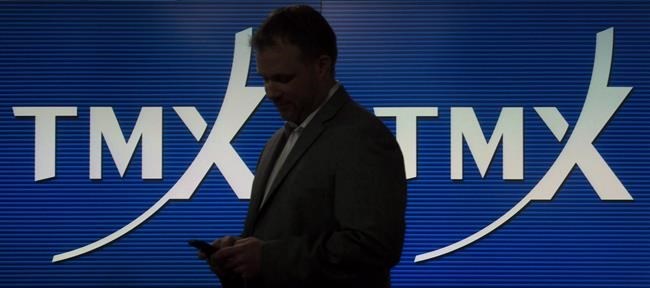TORONTO — Canada's main stock index moved lower to start the week as COVID-19 lockdowns pushed the key sectors of financials, energy and materials down.
"The focus is on what's really been the focus for the past several weeks, which is the incoming economic information that's showing some of the renewed stress on the economy as lockdowns pick back up and cases surge," said Craig Fehr, investment strategist at Edward Jones.
As inoculations began Monday in Canada and the U.S., the longer-term hopes are that the vaccine will bring more economic normalcy next year.
"Today represents for North America kind of a seminal date, in terms of the vaccines being shipped and the first doses being administered, which is fantastic news," he said in an interview.
However, markets didn't react since they rallied over the past few weeks in anticipation of the rollout.
Fehr expects markets will respond over time to disappointing news about the virus or economic data that will result in periodic bouts of market volatility.
The S&P/TSX composite index closed down 161.52 points at 17,387.40.
In New York, the Dow Jones industrial average was down 184.82 points at 29,861.55. The S&P 500 index was down 15.97 points at 3,647.49, while the Nasdaq composite was up 62.17 points at 12,440.04.
In addition to the virus, early optimism was sparked Monday by a stimulus proposal in the U.S. that would carve out a bipartisan US$908-billion compromise.
About US$700 billion in one package would release funds for unemployment insurance and additional help for small businesses. A more controversial part that includes money for local and state governments would be relegated to a separate tranche.
"So while nothing is set in stone yet, what that says is that lawmakers are trying to get a bit more creative to get a deal done and I think the markets are waiting to see if that will bear some fruit," Fehr said.
"But the bigger information that the markets are waiting on is certainly the incoming economic information in Canada and the U.S. and around the world showing just how much fatigue is exerted on the recovery as we go through this most recent wave of lockdowns."
Energy led the TSX lower, falling 2.2 per cent despite higher crude oil prices.
The January crude contract was up 42 cents at US$46.99 per barrel and the January natural gas contract was up 9.1 cents at US$2.68 per mmBTU.
The Canadian dollar traded for 78.39 cents US compared with 78.31 cents US on Friday.
Shares of Imperial Oil lost three per cent, while Suncor Energy Inc. was down 2.8 per cent and Cenovus Energy Inc. off 2.6 per cent.
While oil is up on expectations of increased demand as the economy improves, the sector was taking a breather after gaining almost 20 per cent in the past couple of months.
"Given just how strong of a rally we've seen over the past couple of months, it's reasonable that we're going to see markets take a breather periodically," Fehr said.
The materials sector was down 1.8 per cent with Kirkland Lake Gold Ltd. off five per cent and Kinross Gold Corp. 4.25 per cent lower.
The February gold contract was down US$11.50 at US$1,832.10 an ounce and the March copper contract was down 0.15 of a cent at nearly US$3.53 a pound.
Technology and consumer discretionary led the TSX with Constellation Software Inc. up 2.8 per cent and Magna International Inc. up 1.3 per cent.
This report by The Canadian Press was first published Dec. 14, 2020.
Companies in this story: (TSX:MG, TSX:CSU, TSX:KL, TSX:K, TSX:IMO, TSX:SU, TSX:CVE, TSX:GSPTSE, TSX:CADUSD=X)
Ross Marowits, The Canadian Press




